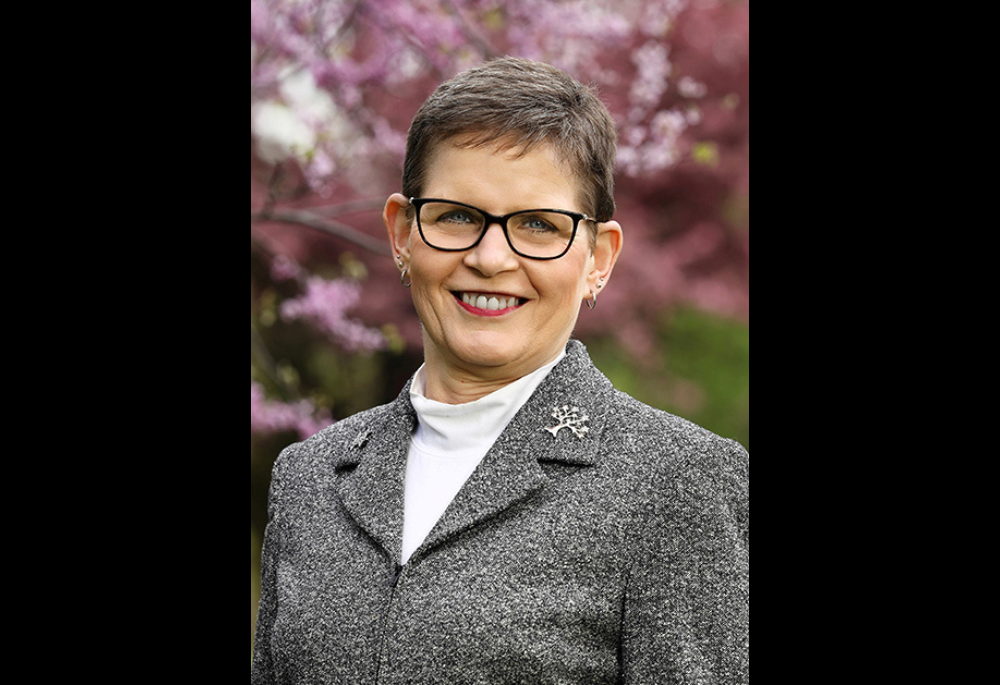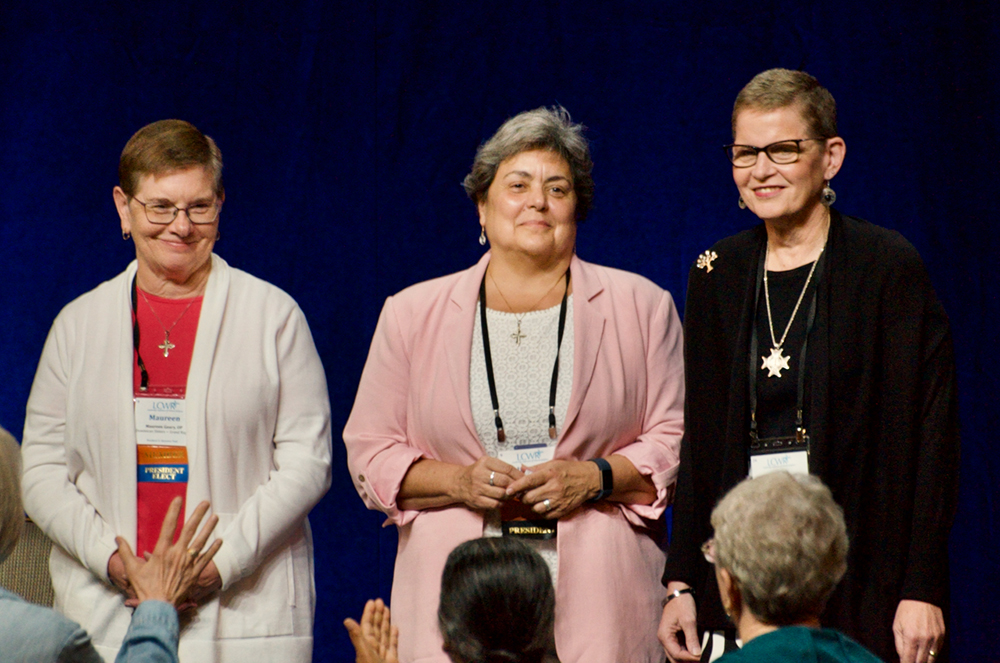
Sr. Sue Ernster (Courtesy of the Franciscan Sisters of Perpetual Adoration)
People around her noticed it before Sue Ernster did: She was happiest when she was with Catholic sisters.
While working on her bachelor's degree in accounting at Loras College in Dubuque, Iowa, where she grew up, Ernster was involved in campus ministry. After graduating in 1985, she worked as an accountant for a couple of years, then did a two-year stint with the Franciscan Sisters of Perpetual Adoration as a volunteer in southeast Kentucky. After moving back to the Midwest, she stayed connected with the sisters and people began to notice a change in her.
"They would say, 'You're hanging out with the sisters and you seem really happy when you're with them,' " Ernster said. The idea of joining religious life wasn't from within, it was from others.
But when she did start to consider it, she wasn't nervous or frightened.
"There was a real calm about it, a real interior peace," Ernster said. "Not that it's always been easy, but there's a grounding, a knowing that this is where I need to be."
On Aug. 11, Ernster became president-elect of the Leadership Conference of Women Religious, which represents about two-thirds of the nearly 40,000 Catholic sisters in the United States.

Leadership Conference of Women Religious president Sr. Maureen Geary, past president Sr. Rebecca Ann Gemma and president-elect Sr. Sue Ernster are blessed Aug. 11, after taking office at annual assembly in Dallas. (GSR photo/Dan Stockman)
GSR: Most people wouldn't think of "religious life" and "certified public accountant" normally belong in the same sentence. How have these two fit together for you? And how do leadership and accounting go together?
Ernster: When I was getting to know sisters, I got to know sisters within the FSPAs were financial comptrollers and worked at large Catholic universities in their business offices, and I saw that the call wasn't only to specific ministries, that religious life isn't only education or health care. And if you're going to have these big, complex institutions, financial knowhow is absolutely necessary.
In leadership, sometimes it is organized chaos and sometimes it's chaos. In accounting, order is the goal, but when that doesn't work out, you have to be flexible and find another way to get to the answer. That overlaps with leadership, because you have to be flexible rather than only being able to follow the set path. You want to have things all flowing correctly, but there's more than one way to do it. It's about how to adapt and get others to be creative, and I think that is where leadership comes in.
What excites me about this time with LCWR is we're given a real opportunity to be creative as we're moving forward with imagining how religious life can be. The current systems are not working, they're not sustainable, so this is a prime opportunity to be creative and use all the skills we have to live into something new.
In the midst of the COVID-19 pandemic, there was this hope that this was our chance to change things, to make an economy that works for everyone instead of a wealthy few, to appreciate our interdependence rather than our independence. Has anything changed?
In Pope Francis' book Let us Dream, he says we're called to disrupt things. The political and economic systems are broken and we need to do something different. That is what religious have been doing since we were founded — being countercultural. We need to find fixes and show how we can do more together than we can alone.
What have we learned? I'm not sure, because we're still in the throes of it, we're able to fully unpack the effects COVID-19 has had on us as a world. I think it highlighted some of the inequities that were not as evident as before, such as access to the internet. It also showed how much as a society we need interaction — when we were separated we did not flourish. It also highlighted how we need to improve how we communicate with one another.
In the political arena, we're having a hard time talking to each other, even within the hierarchical church and within congregations we struggle sometimes. So it's another opportunity to really practice what we believe about respect for all.
Advertisement
LCWR officials often say religious life is changing, but we don't yet know what it is changing to. How do you see the future of religious life?
In the last few years we've seen many more inter-congregational connections. Organizations and groups are looking at how you invest differently so all people have access to the benefits. And as we continue to live into the LCWR call and how migration, racism and climate change are all connected, it calls us to the core of what is so essential, and what the world needs.
Now we really get to hone in on what is specific to religious life, that is distinct from married life, single life and the diocesan priesthood. We need to see how each of those are valid, and see that you can still be about mission and not be a vowed religious. As our vowed numbers are shifting, our mission and our charism doesn't need to end with us — it's how we ensure that continues through others.
Some people feel called to leadership, and others are dragged into it kicking and screaming. Where do you fall on the scale?
If a 10 is "always wanted to be in leadership" and a 1 is "kicking and screaming," I was probably a 6 or 7 initially. But for me it's always a question of how do I best utilize the skills and talents I have for the congregation and for God? When I was treasurer of the congregation, we underwent a three-year renovation process that I was the main contact for, so I learned a lot of different skills and learned how to adapt them. I like to work with others and see how we can work collaboratively, so that just naturally flowed into being vice president, then president, and now in the presidency at LCWR.
What's exciting to me about LCWR is the collaboration potential. I think it's about walking together — LCWR is the gathering place for all of us to have these discussions. The future is foggy because we're not sure how things are going to change, but LCWR's role is helping to hold the containers for that to happen.







